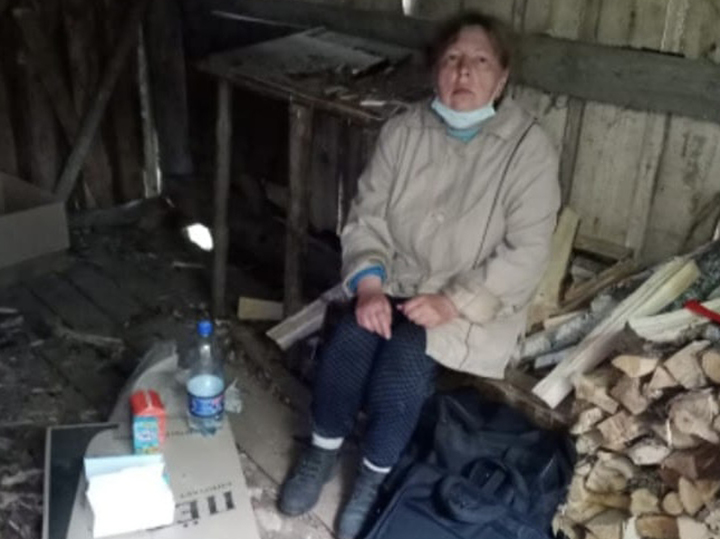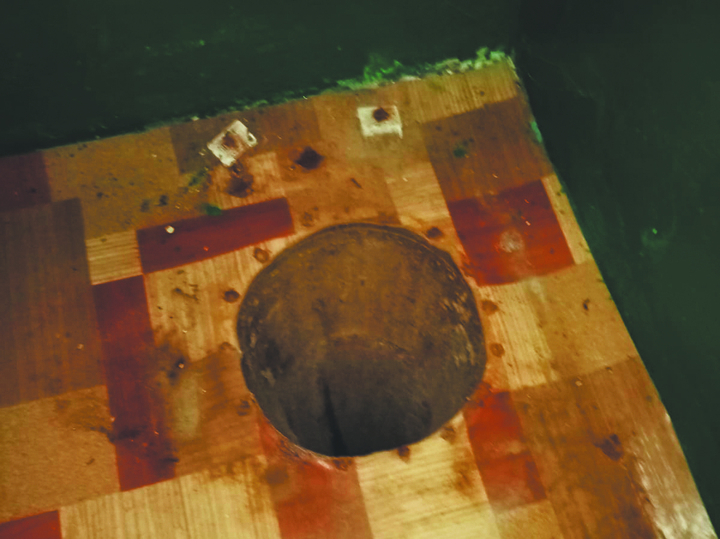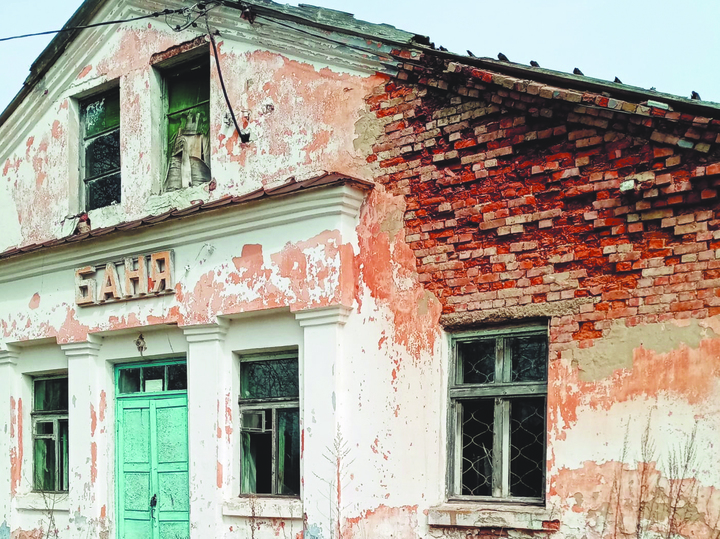A literature teacher told how she has been trying to get out of dilapidated housing for 13 years
[ad_1]
22 years ago, Irina Soshnikova moved to Russia from the Kyrgyz city of Osh due to interethnic clashes.
“At that time, people fled Osh wherever they could,” recalls the interlocutor. — In Kyrgyzstan, I had a comfortable three-room apartment, a job, a career. By education I am a teacher of Russian language and literature, I have an academic degree.
In 2002, Irina and her mother went to the Novgorod region. It took a lot of time to obtain citizenship: Soshnikova received a passport after two years, her mother – after 5 years.
— We were denied forced migrant status because we didn’t have a Russian passport. Thus, we lost all benefits and a housing certificate.
In Russia, Soshnikova got a job at a school in the village of Lychkovo. The teacher was not provided with housing; there was simply none.
“We had some small savings left, enough money for an apartment in a wooden two-story barracks with stove heating, built after the war. At that time, teachers and educators settled there…

In 2009, there was a fire in the house. All the neighbors have left.
“My mother and I had nowhere to move; we were left alone in the house. Due to the fact that the barracks were not heated, they began to rapidly collapse. Looters got in here and knocked out window frames. In winter, empty apartments stood in the snow; in autumn they were flooded with rain.
In 2011, Soshnikova asked the head of the rural settlement to recognize the house as unsafe and to include it in the program of resettlement from dilapidated housing. The head of administration agreed. The interdepartmental commission made a decision to recognize the house as unsafe.
“And then they unexpectedly turned the tables: in 2014, the house was included in the overhaul program,” continues Irina. “I was indignant, and they offered me to do an independent examination at my own expense and prove that the house was in disrepair. My mother and I have miserable pensions; we wouldn’t be able to afford an expensive construction inspection. I hoped until the very end that officials would be smart enough not to repair junk where no one has lived for a long time. Not enough…
In 2016, builders began repairing the roof and allocated 631 thousand rubles from the budget.
— By that time, the foundation of the house had gone half a meter underground. When they hammered the roof, the ceilings shook, began to collapse, and the rotten ceilings could not stand up. Builders fell into apartments. After this repair, my mother died. She was a home front worker, survived the war, but could not withstand repairs. And I was left alone in the barracks.
After the “overhaul,” the new roof began to leak. The woman filed a lawsuit to have the house recognized as unsafe.
— Litigation with officials lasted for two years. In 2018, the court declared the house unsafe. The housing inspection confirmed that living in the house poses a threat to life and health. They agreed that the overhaul was impractical.

The woman was offered to move to a flexible fund. They promised that as soon as the resettlement program started working, she would be included there.
— I was offered to change one emergency housing to another. In Lychkovo, the houses of the maneuverable stock are brick buildings from the 60s with stove heating, which are being destroyed. They are all half empty. There is no water supply or sewerage there. The toilet is a hole in the floor and a cesspool. There are through gaps in the walls, the street is visible. The roof is like a sieve. The walls are moldy, freezing, the wallpaper is falling off. I refused. Then the local administration filed a lawsuit against me for forced eviction to the maneuver fund. And I was forcibly thrown out of the wooden barracks. While my things were being transported, they broke the bed, the closet, and broke the dishes. I’m a philologist, I’ve been collecting a library for many years, so they randomly threw my books into a pile.
Now Irina says that she lives wherever she has to. There are no living conditions in the new barracks.
“I come there to change clothes and run back.” In frosty weather, the cesspool freezes and waste rises to the top. I can’t breathe. You can get poisoned. I have to go around to people and ask for a place to stay for the night. I have already written to Putin and the governor. And in Lychkovo they hounded me. They are driving us back to Kyrgyzstan. They say: I came to look for profit. The locals look askance, they say, we live – and don’t complain.
Indeed, the Russian people are no strangers to patience. Some time ago, the public bathhouse in Lychkovo was closed. People tried to be indignant, but nothing came of it.
“The bathhouse was a salvation; there is no running water in the village.” In private homes, pensioners are unable to heat their own baths. Everyone went to the public one,” adds Irina. — When the bathhouse fell into disrepair, it was closed and a temporary wooden one was built. She worked once or twice a week; men were given an hour to wash, women were given an hour. Then she was gone too. The people went to court. In 2021, the court decided to open the bathhouse, but local authorities decided that this was inappropriate. The villagers wash themselves in basins, but what kind of washing is this?

Apart from the bathhouse, there is no pharmacy or bus service in Lychkovo. The hospital in Veliky Novgorod can only be reached by taxi for 6,000 rubles one way.
But if Irina can come to terms with the lack of public transport, a pharmacy and a bathhouse, she cannot deal with the smelly hole in the floor.
“I’m just asking to be included in the program for resettlement from emergency housing.” The President instructed the government to launch a new program. I agree to move to another place, anywhere. I recently saw that in the Novgorod region 173 houses were included in the draft program, but my barracks are not there. And there is no one to help me. If earlier journalists wrote about me, then recently the local media have given up on talking about me.
Soshnikova keeps in touch with former classmates from Osh. Some moved to Europe, others to the Urals and Belgorod region.
— Those who moved to the Urals and Belgorod region received forced migrant status and housing certificates. Some were given brand new houses in the countryside, and the street where they were placed was called Oshskaya. But here I was only recognized as low-income and was given a pension of 14 thousand rubles. I can barely get by. A cart of firewood costs 10 thousand, but for the winter you need three of them. When my entire pension was spent on legal expenses, my classmates helped with money for firewood. I don’t ask for so much for those 13 years of fighting for housing that were taken from me…
[ad_2]
Source link








